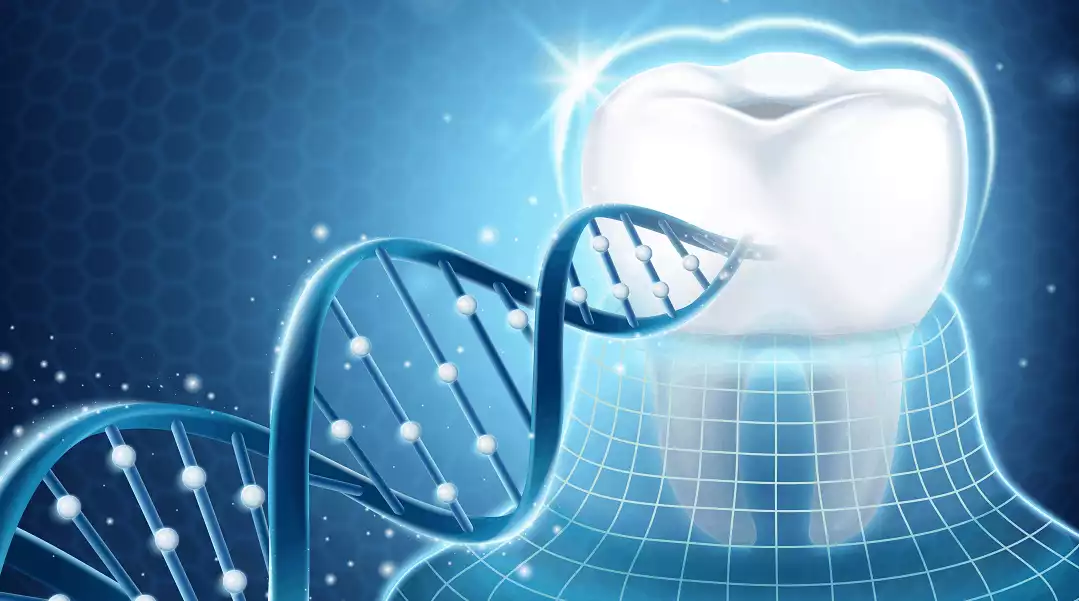Genetics can play a major role in influencing your overall health, including your dental health. It’s important to be aware of this connection and the potential risks it presents. In this article, we’ll explore the link between genetics and poor dental health, its causes and effects, as well as what you can do to help prevent or treat it. By understanding how genetic can influence dental health, you’ll be better equipped to make informed decisions about your dental care and take proactive steps to protect yourself.
What is the link between genetics and dental health?
Genetics can be a major contributing factor to poor dental health. There are several genetic factors that can increase the risk of developing dental problems. These include inherited diseases, conditions, and traits that can affect the teeth, gums, and mouth. For example, certain genetic conditions can cause tooth decay, gum disease, and other dental issues. Additionally, certain genetic traits such as a narrow jaw or a high palate can make it difficult to keep teeth clean and healthy.
What are the causes and effects of poor dental health?
Poor oral hygiene: If you don’t brush and floss regularly, plaque and bacteria can build up on your teeth and cause tooth decay and gum disease.
Unhealthy diet: A diet high in sugar and carbohydrates can contribute to tooth decay and gum disease.
Genetics: Some people may be more susceptible to dental problems due to their genetic makeup.
Tobacco use: Smoking or using other tobacco products can increase the risk of gum disease and tooth loss.
Medical conditions: Certain medical conditions, such as diabetes, can increase the risk of dental problems.
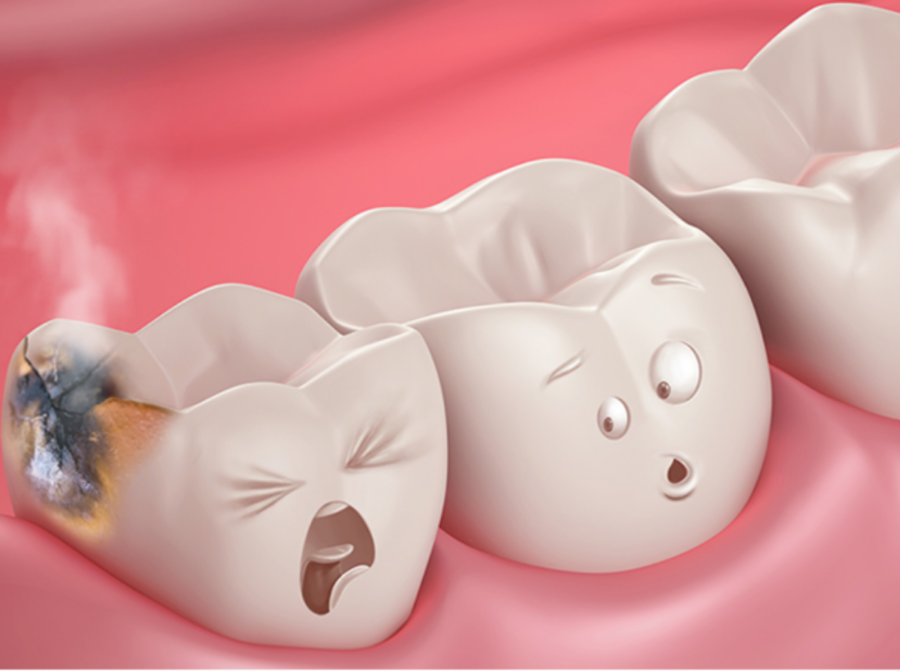
Tooth decay: Cavities can cause pain, sensitivity, and difficulty eating.
Gum disease: Gingivitis and periodontitis can cause gum inflammation, bleeding, and tooth loss.
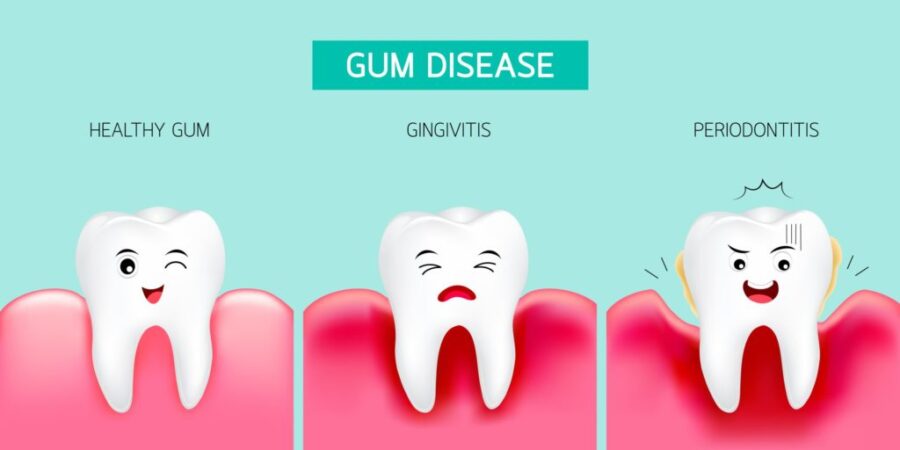
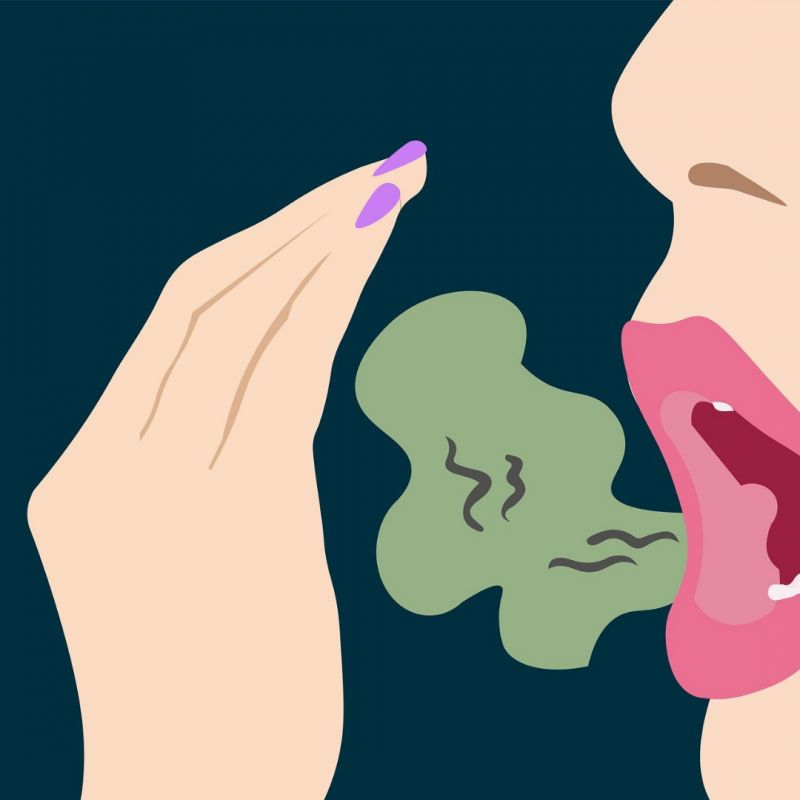
Bad breath: Bacteria in the mouth can cause bad breath, or halitosis.
Tooth loss: Advanced gum disease or untreated tooth decay can lead to tooth loss.

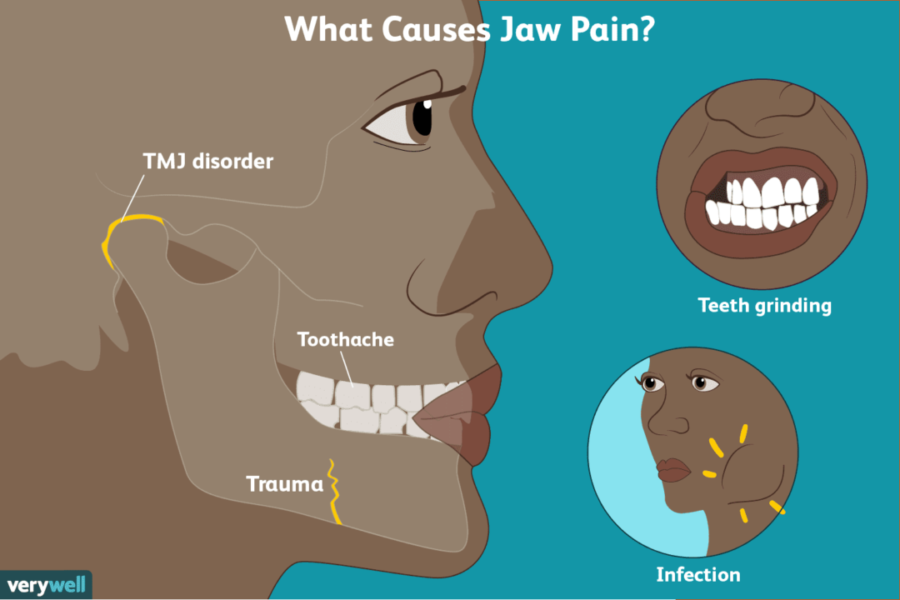
Jaw problems: Chronic tooth grinding or clenching can lead to jaw pain and damage to the temporomandibular joint (TMJ).
Overall health problems: Poor dental health has been linked to a variety of other health problems, including cardiovascular disease, diabetes, and respiratory infections.

Most common genetic factors that influence dental health?
Tooth shape and size: The size and shape of teeth are determined by genetics, and certain variations can make teeth more prone to decay or crowding.
Enamel strength: Enamel is the hard outer layer of the teeth that protects them from decay. Genetic variations can affect the strength and durability of enamel, making teeth more vulnerable to decay.
Saliva production: Saliva helps to neutralize acids in the mouth and wash away food particles. Genetic variations can affect the amount and quality of saliva produced, which can impact oral health.
Immune response: Some genetic variations can impact the body’s immune response, making some people more susceptible to gum disease and other oral infections.
Taste sensitivity: People’s sensitivity to different tastes can influence their food choices and therefore their dental health.
It’s important to note that while genetics can play a role in it, environmental factors such as diet, oral hygiene habits, and tobacco use also have a significant impact on oral health. Regular dental check-ups and cleanings, along with a healthy lifestyle, can help promote good dental health regardless of genetic factors.
Identify potential genetic risks to your dental health?
If you’re concerned about potential genetic risks to it, it’s important to talk to your dentist. Your dentist can examine your teeth and gums and identify any potential genetic risks. If you have any known genetic conditions, it’s important to let your dentist know so they can provide the right care and treatments.
Yes, poor dental health can be partly genetic. Research has shown that some people may have a genetic predisposition to certain dental conditions, such as tooth decay, gum disease, and enamel defects. However, genetics alone do not determine dental health, as environmental factors, such as diet and oral hygiene practices, also play a significant role.
For example, if your parents have a history of gum disease or tooth decay, you may be more susceptible to these conditions. However, if you maintain good oral hygiene habits, such as regular brushing and flossing, and a healthy diet, you can still prevent or minimize these dental problems.
It’s also important to note that genetics may not be the only factor contributing to poor dental health. Lifestyle factors such as smoking, excessive alcohol consumption, and a high-sugar diet can also increase the risk of dental problems. Therefore, it’s essential to maintain good oral hygiene practices and make healthy lifestyle choices to maintain good dental health, regardless of your genetic predisposition.
Steps to prevent or treat genetic dental health problems?
Practice good oral hygiene: Brushing twice a day, flossing daily, and using mouthwash can help prevent tooth decay and gum disease.
Use fluoride: Fluoride can help strengthen tooth enamel and prevent decay. Consider using a fluoride toothpaste or mouthwash.
Eat a healthy diet: A diet low in sugar and high in nutrient-rich foods can promote good dental health.
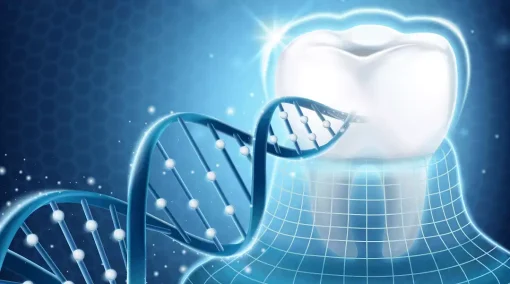
Avoid tobacco: Smoking or using other tobacco products can increase the risk of gum disease and tooth loss.
Visit the dentist regularly: Regular dental check-ups and cleanings can help prevent dental problems and catch them early.
Consider orthodontic treatment: If your genetics have left you with crowded or misaligned teeth, orthodontic treatment such as braces or Invisalign can help straighten teeth and improve dental health.
Use mouth guards: If you grind your teeth at night or participate in contact sports, wearing a mouth guard can help protect your teeth from damage.
Find the right dental health provider for your needs?
When looking for a dental health provider, it’s important to find one who is experienced in working with people who have known genetic conditions. It’s also important to look for a provider who is willing to listen to your concerns and provide personalized care. Additionally, it’s important to find a provider who is up-to-date on the latest treatments and technologies for genetic conditions.
Most effective treatments for genetic dental health issues?
Tooth decay: Treatment for tooth decay typically involves removing the decayed portion of the tooth and filling the cavity with a dental filling. If the decay is extensive, a dental crown or root canal may be necessary.
Gum disease: Treatment for gum disease usually involves a deep cleaning of the teeth and gums to remove plaque and tartar buildup. In some cases, antibiotics or surgery may be necessary.
Crowding or misalignment of teeth: Orthodontic treatment, such as braces or Invisalign, can help straighten teeth and correct crowding or misalignment.
Enamel defects: Treatment for enamel defects may include fluoride treatments or dental bonding to help strengthen the teeth.
Dry mouth: Treatment for dry mouth caused by genetics may include artificial saliva products, prescription medications, or lifestyle changes such as staying hydrated and avoiding alcohol and tobacco.
Latest developments in genetic dental health?
Staying informed about the latest developments in genetic dental health can help you make informed decisions about your dental care. You can stay informed by reading articles, attending conferences, and talking to your dentist about the latest research and treatments. Additionally, patient advocacy organizations can be a great resource for staying up-to-date on the latest developments.
Conclusion
Genetics can play a major role in influencing your dental health. It’s important to be aware of the link between genetics and poor dental health, its causes and effects, as well as what you can do to help prevent or treat it. By understanding how genetics can influence dental health, you’ll be better equipped to make informed decisions about your dental care and take proactive steps to protect yourself.

